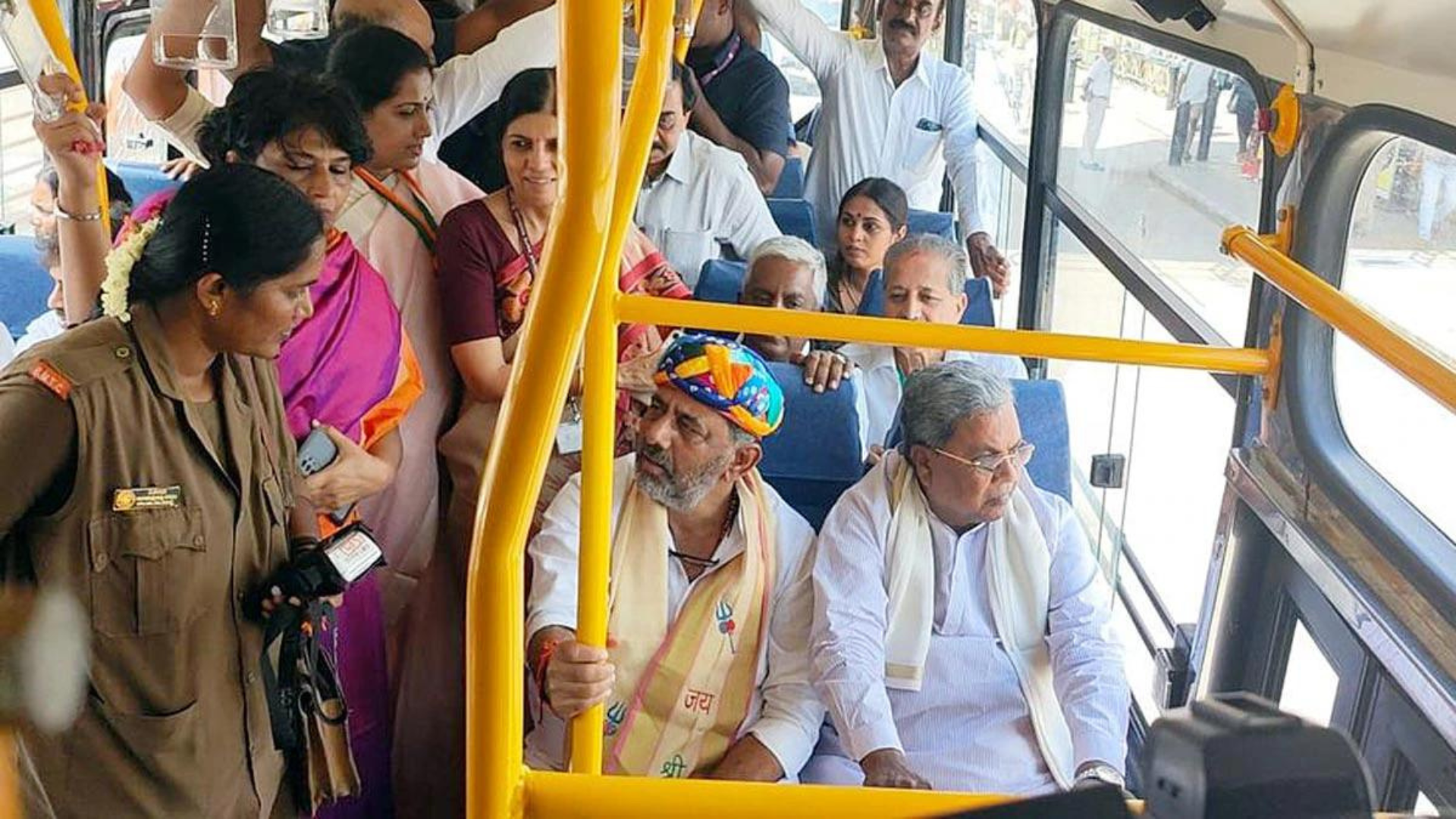On Tuesday, the Karnataka government celebrated the first anniversary of its Shakti scheme, which provides free bus travel for women. Launched on June 11, 2023, the scheme has been immensely popular, with beneficiaries making 229 crore free trips over the past year, equating to a ticket value of approximately Rs 5,500 crore.
Implication of Shakti Scheme
The Shakti scheme, one of the five pre-poll guarantees by the Congress government, aims to empower women and promote the use of public transport. In its first month alone, 10 crore women took advantage of the free rides, costing the state exchequer Rs 248 crore.
The breakdown of the 229 crore rides is as follows:
- Karnataka State Road Transport Corporation (KSRTC): 68 crore rides, costing Rs 2,077 crore.
- Bangalore Metropolitan Transport Corporation (BMTC): 71 crore rides.
- North Western Karnataka Road Transport Corporation (NWKRTC): 52 crore rides.
- Kalyana Karnataka Road Transport Corporation (KKRTC): 38 crore rides.
To meet the soaring demand, the four road transport corporations increased their daily operated kilometers to 67 lakh. They also plan to expand their fleet by adding 5,676 buses, including 2,271 electric buses, at a cost of Rs 500 crore.
A study by the state-run Fiscal Policy Institute revealed that since the Shakti scheme’s inception, Karnataka’s Goods and Services Tax (GST) collection has “presumably” increased by Rs 309.64 crore. This indicates that the money saved on transportation is being spent on other consumption activities, boosting state revenue. Additionally, the scheme has led to a significant increase in women’s workforce participation and a rise in footfall at pilgrimage sites.
Despite its success, the Shakti scheme has faced criticism. Many women have reported overcrowded buses, forcing them to rely on other modes of transport. Additionally, some have noted that the high cost of running the scheme has led to a reduction in bus frequency on certain routes.
Overall, the Shakti scheme has had a profound impact on public transport usage and women’s empowerment in Karnataka, while also presenting challenges that the government continues to address.







